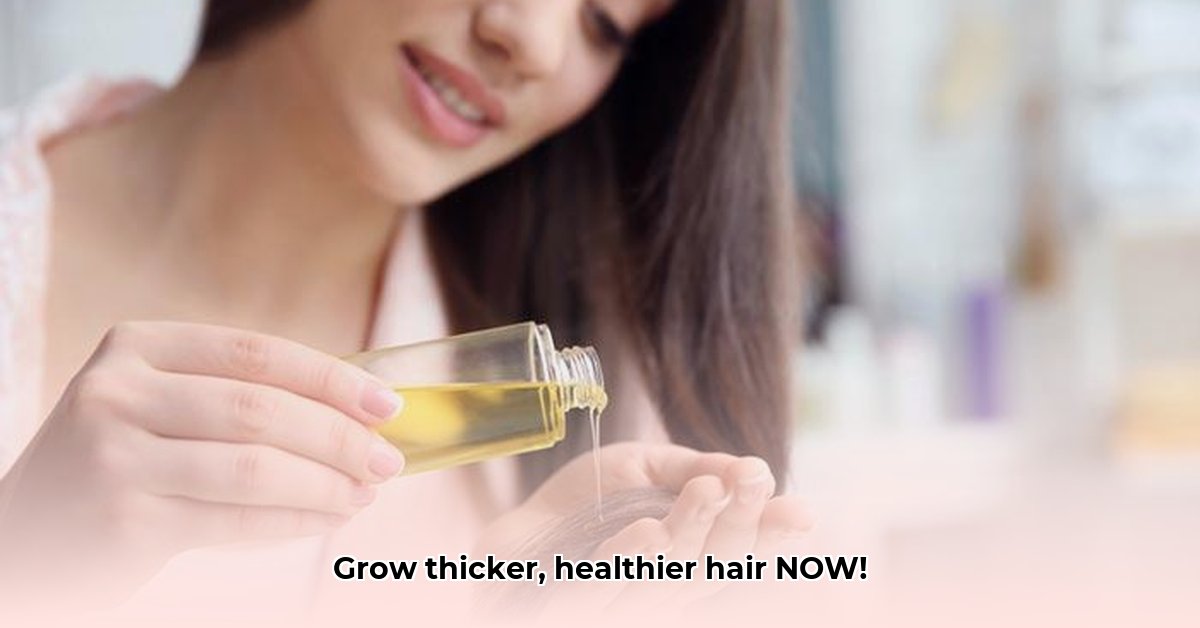
Benefits of Evening Primrose Oil for Hair Growth: A Critical Review
Evening primrose oil (EPO) has gained popularity as a potential aid for hair growth. While anecdotal evidence and some preliminary research suggest potential benefits, a comprehensive understanding requires a critical review of the existing scientific literature. This article explores the potential mechanisms, limitations of current research, and crucial safety precautions associated with using EPO for hair growth.
Understanding Evening Primrose Oil's Composition
Evening primrose oil is a natural oil rich in gamma-linolenic acid (GLA), an omega-6 fatty acid. This, along with other antioxidants present in EPO, may contribute to its potential benefits. GLA's anti-inflammatory and antioxidant properties are frequently cited as the primary mechanisms by which EPO might impact hair health. It's crucial to differentiate EPO from evening primrose essential oil; essential oils are highly concentrated and should never be applied directly to the scalp without significant dilution.
What the Science Says (or Doesn't Say) About EPO and Hair
While many individuals report positive experiences with EPO for hair growth, high-quality clinical trials directly demonstrating its effectiveness are limited. Many studies concentrate on the effects of GLA, a component of EPO, rather than the oil itself. Therefore, while some suggest EPO may help with hair loss, especially in cases potentially linked to inflammation, more robust, large-scale research is needed to confirm these anecdotal claims. Dr. Anya Sharma, Dermatologist at the University of California, San Francisco, cautions, "While EPO shows promise due to its anti-inflammatory components, we lack conclusive clinical evidence to definitively recommend it for hair regrowth."
Potential Mechanisms: How EPO Might Influence Hair Health
Based on the properties of its components, EPO may affect hair growth through several mechanisms:
- Anti-inflammatory effects: GLA's anti-inflammatory properties might reduce scalp inflammation, creating a healthier environment for hair follicles. A healthy scalp is essential for healthy hair growth.
- Antioxidant protection: EPO's antioxidants could protect hair follicles from damage caused by free radicals, contributing to stronger, healthier hair. Oxidative stress is a significant factor in hair loss.
- Improved circulation: Improved blood flow to the scalp, potentially mediated by GLA, could supply hair follicles with necessary nutrients for growth. Increased scalp circulation is linked to improved hair follicle function.
It's crucial to remember that these are potential mechanisms, and further research is needed to solidify their role in EPO's impact on hair growth. The scientific community remains divided on the strength of the observed benefits.
Safety Precautions: Prioritizing Your Well-being
Before incorporating EPO into your hair care routine, take these precautions:
Patch test: A patch test on a small area of skin (e.g., inner arm) is paramount to identify potential allergic reactions before applying EPO to your scalp. Observe the area for 24-48 hours for any redness, itching, or irritation.
Drug interactions: EPO may interact with certain medications, particularly blood thinners and hormone treatments. Always consult your doctor or pharmacist if you are currently taking any medications before beginning EPO use. Potential interactions can significantly impact your health.
Quality assurance: Purchase EPO supplements from reputable brands which clearly label ingredients and have undergone third-party testing for purity and potency.
Realistic expectations: EPO is not a guaranteed cure for hair loss. Treat it as a supportive measure, and address underlying causes of hair loss with a healthcare professional.
Is Evening Primrose Oil Right for You?
The decision to use EPO for hair growth is personal. The current limited evidence needs to be counterbalanced against potential benefits and your individual health status. Don't rely solely on online testimonials; prioritize consulting a dermatologist or healthcare professional. They can help assess your specific hair loss situation, determine underlying causes, and recommend the most effective treatment plan.
The Bottom Line: More Research is Needed
While EPO may offer some benefits due to its anti-inflammatory and antioxidant properties, robust, large-scale clinical trials are needed to confirm its effectiveness for hair regrowth. Current evidence is insufficient to make definitive claims. A balanced perspective, along with professional guidance, is essential when considering the use of evening primrose oil for hair.